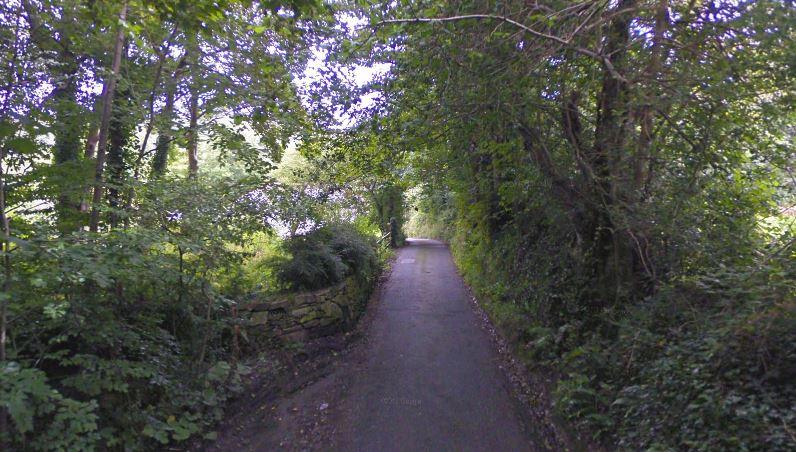Traffic ban trial for rural 'rat run'

People use the rural area as a short cut to reach Cornwall's main hospital and Truro College, residents said
- Published
A ban on traffic will be introduced in a network of country lanes used as a "rat run".
The Cornwall Council trial in a section north west of Truro, will only allow access by residents and their visitors, emergency services and delivery vehicles.
The six-month scheme which starts in mid-August aims to make the roads safer for walkers, cyclists and horse riders.
The council said it was more dangerous at peak hours when about 200 vehicles use the 15km network.
The Council will apply an Experimental Traffic Regulation Order (ETRO) to the "Quiet Lanes" area, with legally enforceable prohibition signs erected at 11 entry points. 
The scheme does not include any road closures or physical obstructions.
Resident John Cooper described the lane where he lives as a "rat run"
Anyone who uses the roads and lives in the area between Shortlanesend and Threemilestone is being asked for their view on the scheme.
Feedback from surveys, as well as the results of traffic monitoring, will help determine whether the system will become permanent, amended or scrapped, Cornwall Council said.
Simon Turriff who lives in the designated area said: "The lanes are very dangerous, in the 17 years I've lived here I've had three accidents in the lane where people have driven into me".
Local horse rider Jean McNaughton said she had been "knocked into the hedge by a 4x4 wing mirror", while resident John Cooper said: "People that drive round here as a rat run haven't got five minutes to live... in the mornings it's terrible."
Philip Desmonde, Cornwall Council cabinet portfolio holder for transport, said: "Research shows that around a third of journeys made by car are of less than 5km."
"We want to encourage people to leave their cars at home where possible and look to more sustainable ways of travelling short distances," he said.
David Harris, Cornwall Council member for Gloweth, Malabar and Shortlanesend, said: "These roads were not built for the amount of traffic that is now seeking to use them, nor for the size of vehicles."
However, he admitted "some people may be inconvenienced" by the trial.